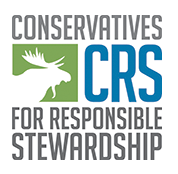The sweltering Summer of 2023 has come to a close. According to NASA and the World Meteorological Organization, it was Earth’s hottest summer on record, with July and August being the two hottest months ever recorded. Our warming climate has moved well beyond the era of minor temperature fluctuations and scientific modeling, it is slapping us in the face by smashing records and adversely affecting people’s lives.
Here in the U.S., more than a dozen cities experienced their hottest summer ever. These include Pensacola, Sarasota and Key West, Florida; Mobile, Alabama; Brownsville, Corpus Christi, Del Rio, El Paso, San Antonio and Victoria, Texas; and Roswell, New Mexico.
We are seeing real impacts on our health, on our economy and cost of living, and on our water and food supplies. The impacts of climate change are impossible to ignore, and its time for conservatives to get more engaged in crafting real solutions.
Climate change is driven by the accumulation of greenhouse gases (GHG) in the Earth’s atmosphere, gases that act like a blanket to trap more the sun’s heat rather than allowing it to escape back into space. That extra heat not only results in sweltering heatwaves, it affects weather patterns, intensifies storms, expands the range of destructive or dangerous pests, and fuels wildfires.
Florida, Arizona, California
We have witnessed some record-breaking heat that put all previous summers to shame. NASA’s temperature data show that this summer’s record heat was not just a small blip on the radar. Average temperatures across the country during these months reached levels we’ve never seen before, bringing with them a multitude of challenges for both the environment and our well-being. Florida, Arizona, and California are just a few states to name that faced significant challenges.
Florida, known for its sunny and humid climate, felt the full force of the summer heatwave. With average temperatures consistently exceeding 90°F and the heat index well above 100°F, High humidity levels made it even more oppressive, increasing the risk of heat-related illnesses.
Florida’s environment has taken quite a hit too. The long-lasting heat and drought brought more wildfires, disrupted our freshwater supplies, and severely damaged our agriculture industry. And the craziness didn’t stop there. Ocean water in the Gulf of Mexico simmered to a record—and hot tub like—104°F. The state’s coastal areas are also dealing with more frequent and worse storm damage thanks to rising sea levels and stronger storms.
That is a lot of stress on the Sunshine State’s economy, its natural ecosystems, and the wallets of every Floridian.
In Arizona, where hot summers are the norm, this past summer shattered previous records. The state’s residents had never before experienced anything like it.
Phoenix had the hottest single month of any U.S. city, with every day of July at or exceeding 110°F. In fact, Phoenix had 55 days over 110°F, with in the temps regularly above 115°F. The city even hit a scorching 120°F on some days. That’s seriously intense heat, and it’s no joke – it can be life-threatening. Local authorities had to step in and issue heat advisories to make sure everyone stayed safe.
Arizona’s record-breaking summer heat is also further stressing the state’s water supply by increasing the demand for water and by causing greater evaporation from Lake Powell and Lake Mead. The region’s decades long drought and reduced snowpack in the Rocky Mountains have already reduced the flow of the Colorado River, which Arizona and several other Western States depend on, to a tiny fraction of what it is supposed to be.
Record heat also hit other parts of the country, including Texas, California, Colorado, Oregon, Montana, New Mexico, Kansas, Louisiana, Minnesota, and North Carolina.
In Canada, heat and drought contributed to a hellish and record shattering wildfire outbreak of more than 6,500 fires burning more than 25 million acres. The massive amount of smoke from those fires drifted over large sections of the U.S. Resulting in code red air quality alerts and forcing outdoor events indoors.
The smoke was so thick in New York City that a Yankees game was postponed and flights in and out of LaGuardia were cancelled. In Philadelphia, a Phillies game was and all outdoor school field trips were cancelled. Concerts and plays from Wisconsin to Washington, D.C. were cancelled as well. In Northern Virginia the smoky air forced the state high school lacrosse semi-finals indoors.
Flashing Red
The summer of 2023 isn’t some one-off thing; it’s a giant WARNING sign flashing red about the future impacts of climate change. While some of this unfortunately baked in due to our failure to head the warnings of wise conservative leaders like Ronald Reagan and Margaret Thatcher, it’s not too late to reduce GHG emissions and make things better for our children and grandchildren.
Like President Reagan said, “the preservation of our environment is not a partisan challenge; it’s common sense.” We conservatives have to get more involved in pushing for solutions. Leaving up to the left over the past few decades hasn’t really moved the ball very far. It’s time for us to leverage the power of the free market in this challenge to reduce GHG emissions.
Making that happen is up to you. Out decisionmakers have to feel pressure from the constituents they care most about. President Reagan summed up our obligation perfectly when he, speaking about our natural environment, said, “This is our patrimony. This is what we leave to our children. And our great moral responsibility is to leave it to them either as we found it or better than we found it.”
Let’s not let them down.


